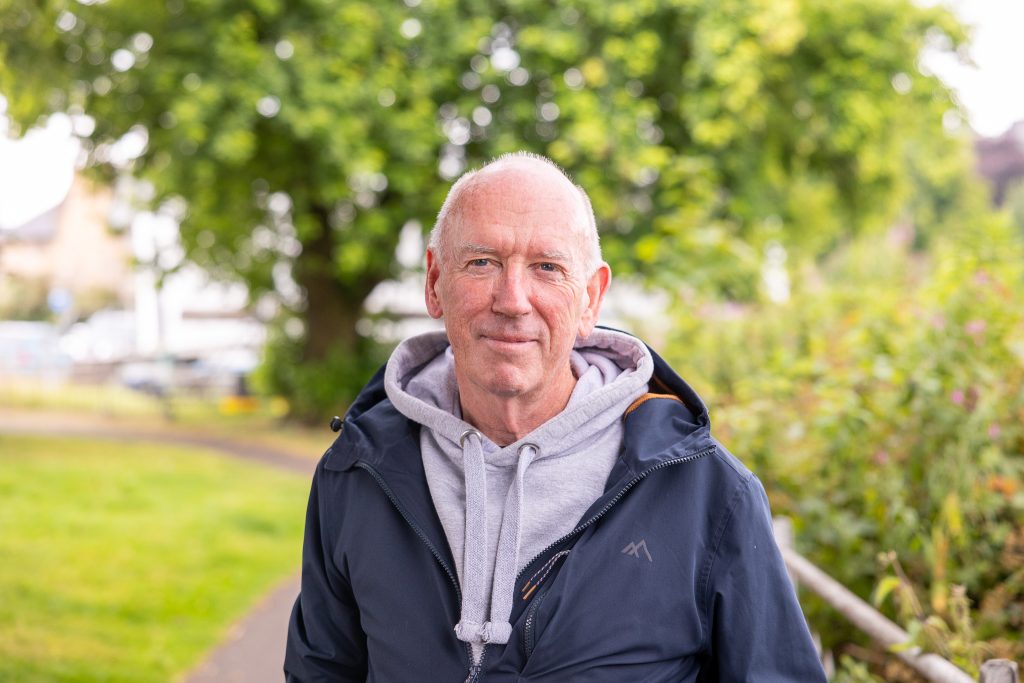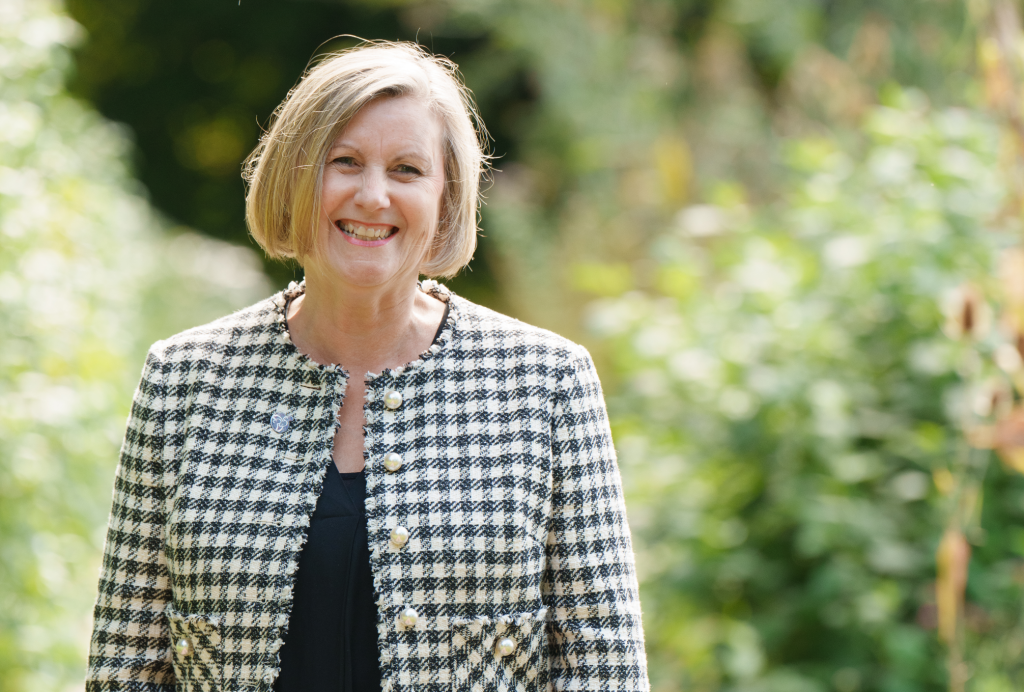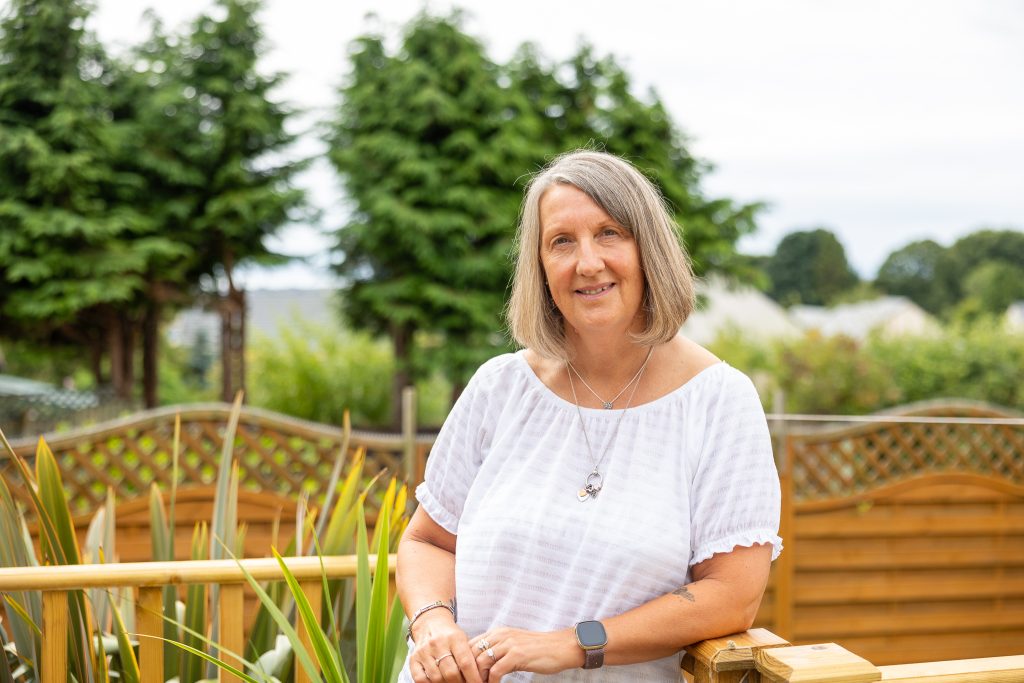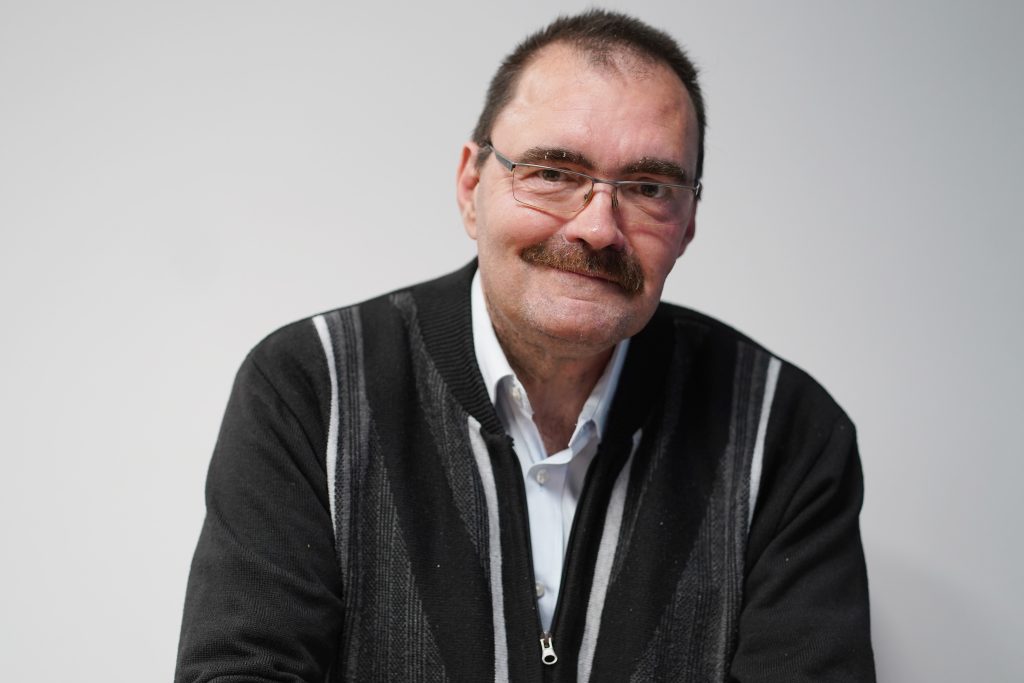When a friend or relative is diagnosed with dementia, it’s natural not to know what to do. But, helping someone stay connected and socially active can help them stay well for longer.
It’s time to rethink dementia.
Living with dementia
In Scotland, dementia currently effects an estimated 90,000 people, 3,000 of whom are under the age of 65.
Dementia is a progressive illness. But, many people with a dementia diagnosis can still keep doing most of the things they have always enjoyed. They can also be an active part of their community, particularly in the earlier stages.
In some cases, a friend or relative with dementia might need a bit more support. But, by staying in contact and doing many of the things you’ve always done together, you can help them more than you think.
Danny
Danny, 72, was diagnosed with Alzheimer’s Disease in 2022. He continues to enjoy a very active social life.
“It really helps me to keep busy and I continue to enjoy socialising with friends, going to the gym regularly, going on holiday and looking after my grandchildren each week with my wife Joan.
Believe it or not, I’ve also learnt Italian since my diagnosis! Life has changed and some allowances need to be made but I am very much living well, thanks to the support of my wife Joan, family and close friends.”

Why social contact is important to people living with dementia
It’s recommended that people with dementia do activities tailored to them. This can improve their wellbeing and may help if they have symptoms like:
- agitation
- anxiety
- depression
- losing interest in things
If they’re left unmanaged, these symptoms can contribute to a faster rate of decline. This is something that was seen during the social isolation of the COVID-19 lockdowns.
If you have a friend or relative who has been diagnosed with dementia, this means it’s really important to stay in contact and support them. By just being yourself, you can help keep them well for longer.
SIGN has more information about the benefits of social interactions
Elaine
“As an allied health professional and occupational therapist, I am privileged to meet people living with dementia, who offer me unique insights into the activities that matter the most to the them. These activities bring purpose to their lives and show that people with dementia can still achieve so much.
“I’m passionate about helping them live well and sustain their connections with family, friends, and communities.”
“The health benefits of spending time with family and friends are well-documented by the evidence and personal stories. This is really important for the wellbeing of us all and this is also true for people living with dementia.”
“We can all make a real difference by continuing to meet a friend or loved one living with dementia and doing the activities we enjoyed together before the diagnosis.”

Things you can do with someone who has had a dementia diagnosis
If you have a friend or relative who has been diagnosed with dementia, they have not changed overnight. They will appreciate your understanding and support, as well as you still being you.
Having fun, laughing and chatting about the same things you always did matters. So, keep doing the things you did together before their diagnosis.
There are so many simple ways you can be there for someone living with dementia. You could:
Do
- go shopping together so they can choose things for themselves
- take your usual walks or go for a scenic bike ride
- keep doing your hobbies together – play your weekly game of golf, watch the local football, go bird watching or go to the gym
- listen to music, reminisce and have a dance
- have them round for dinner or organise a family get-together
- read books – take turns reading aloud or go through it together, you could even start a family book club
- spend time in the garden or walk through the local park, talking about the different plants and flowers
- go for a swim at your local pool or if you live near the water take a dook in the sea
- look through old photo albums to bring back favourite memories
- play games you’ve always enjoyed – things like dominoes, board games, card games and jigsaws
For more ideas, take a look at:
Irene
Irene, 61, was diagnosed with Early Onset Alzheimer’s at 53 and was surprised by the reaction of some of her friends.
“When I was first diagnosed my friends weren’t being themselves. Some friends just walked away but others stayed, and some were behaving differently.
I had to remind them that I was still the same person that loves going to the gym, having fun and gossiping about the things we always did. Being able to still do these things together really helps me.”

How to help a friend or relative who has a dementia diagnosis
If you’re supporting a friend or relative with a dementia diagnosis, try to remember that:
- everyone’s experience of dementia is different
- symptoms can vary daily – if you meet someone living with dementia, you have met that individual and their experience of the disease on that day
- the person is still your friend or relative, regardless of the diagnosis – just be yourself
- try to avoid making assumptions and decisions on that person’s behalf – ask and listen to their thoughts as you did before the diagnosis
- focus on what a person can do and try not to take over – provide support only where they need it
- talking helps – ask them what they need or what frustrations they might be experiencing then make a plan together
- keep tasks and activities simple – it helps to focus on one thing or instruction at a time
- connecting with others living with dementia could be helpful – look for groups in your local area to meet with other individuals, join in activities or have a coffee and a chat
Kenny
Kenny, 56, was diagnosed with Young Onset Vascular Dementia at 50 and continues to be an active member of his community.
“A dementia diagnosis changes things, of course! But life goes on and I can still do most of the things I’ve always done. I just might need a bit of help sometimes, like with working the complicated TV remote. I don’t need you to do it for me though, just a wee hand is great.”

Hear from others about dementia
People in Scotland share their experiences of living with dementia, or of caring for someone with dementia.
Support groups and networks
For support groups and networks in your area, you can go to:
- Age Scotland and Alzheimer Scotland – both have networks of member community groups across Scotland
- Meeting Centres Scotland – they offer community based centres for people living with dementia
- Dementia Friendly Communities Network – a network of Scottish dementia friendly communities
- Carers Connect – an online 24/7 forum to talk about anything related to caring
Advice and support for the different stages of dementia
The symptoms and progression of dementia can vary for each individual. Therefore, some people may need more help or support.
You can get more information about dementia, as well as the help and advice available, through:
- Alzheimer’s Scotland – they offer information and support, plus they have a confidential, 24 hour freephone available on 0808 808 3000
- Age Scotland Dementia Forum and helpline – phone 0800 1244 222
- Care Information Scotland – has further information and advice on support available
- Carers Trust – has information and advice on how to get help and support